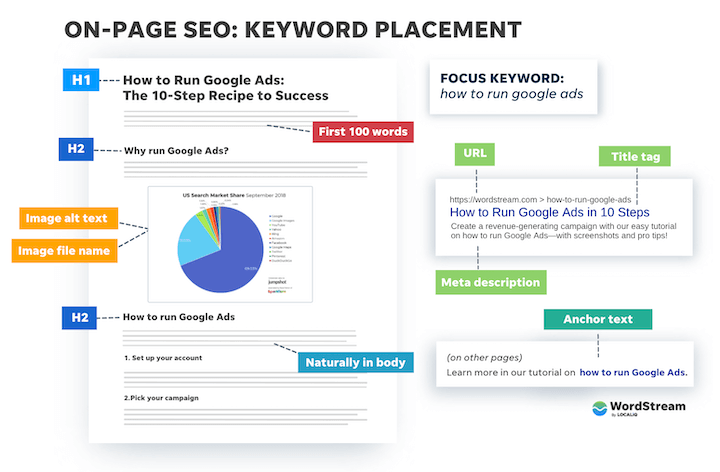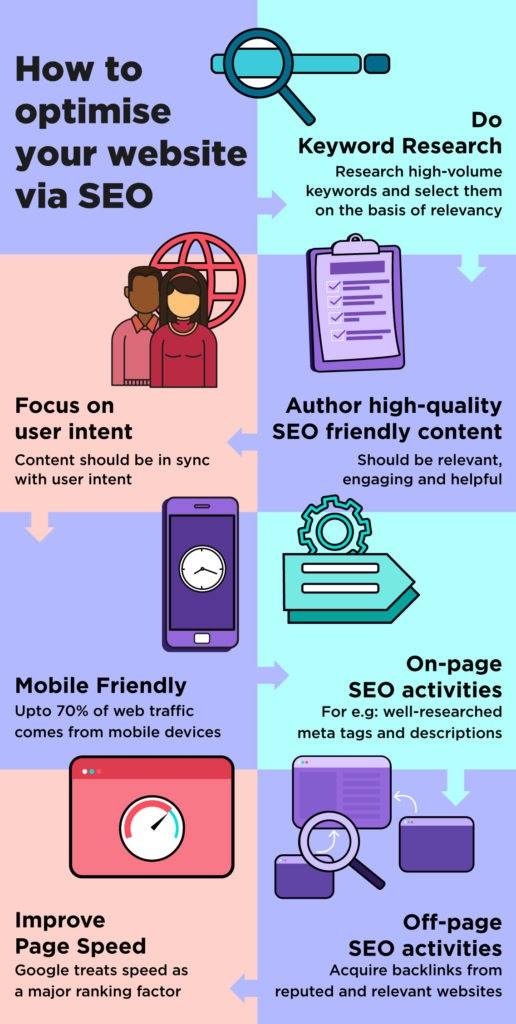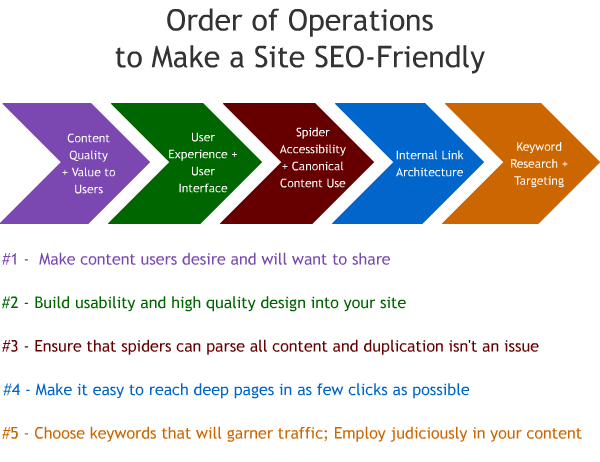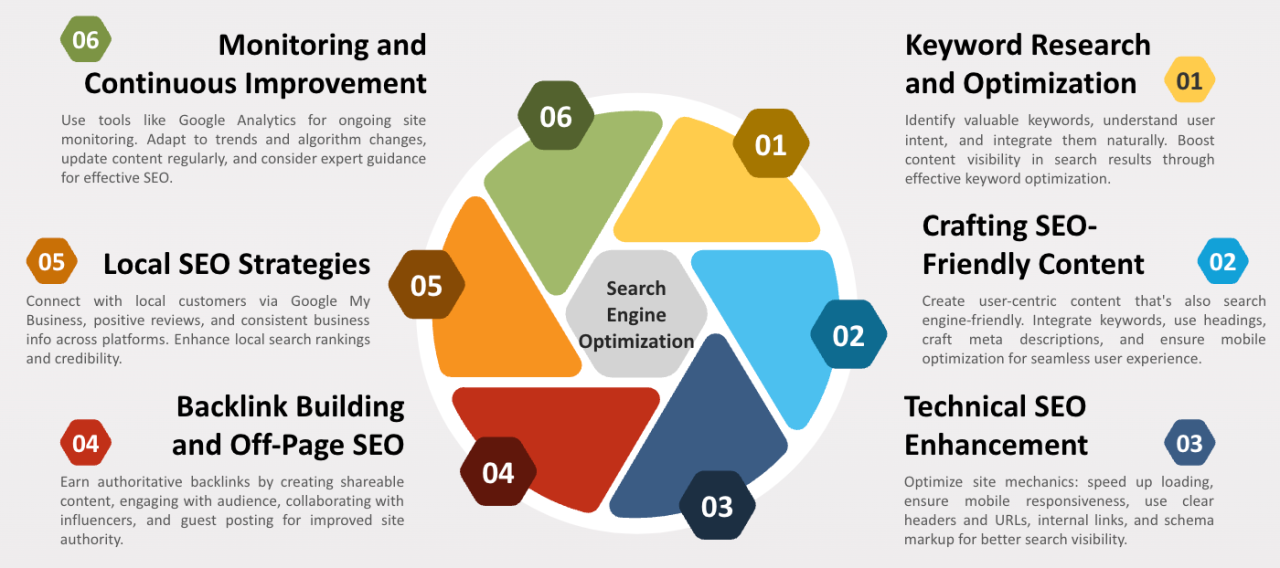![]()
Thank you for reading this post, don't forget to subscribe!
Unlock the secrets to ranking higher on Google with our comprehensive beginner’s guide to mastering SEO strategies and tactics!

Image courtesy of via DALL-E 3
Table of Contents
- Introduction: What is Google SEO?
- Understanding How Google Search Works
- The Role of Keywords in SEO
- Creating Quality Content
- The Importance of Website Design in SEO
- Links and SEO
- Using SEO Tools
- Local SEO: Getting Found in Your Area
- The Do’s and Don’ts of SEO
- Keeping Up with Changes in SEO
- Conclusion: Starting Your SEO Adventure
Introduction: What is Google SEO?
Google SEO, or Google Search Engine Optimization, is like a magical treasure map for the internet. It helps people like me find exactly what we’re looking for online. Just imagine Google as a giant library with millions and millions of books scattered everywhere. SEO is like a librarian that sorts through all those books and helps me find the ones I want. Pretty cool, right?
When I type something into the Google search bar, SEO is what helps Google decide which websites to show me first. It’s like a super smart detective that figures out which websites are the most helpful and relevant to my search. So, if I’m looking for information about penguins, SEO makes sure I see the best and most reliable penguin websites at the very top of my search results.
Understanding Google SEO is like learning the secret code to unlock the internet and find exactly what you need. It’s like having a helpful friend who always knows where to look for the coolest stuff online. In this guide, we’ll explore how Google SEO works, why it’s important, and how you can use it to make your own website easier to find. Get ready to dive into the world of Google SEO with me!
Understanding How Google Search Works
Have you ever wondered how Google knows what websites to show you when you search for something? Let’s dive into how Google Search works to find the most relevant information for you!
Crawling and Indexing
First, Google’s robots, also known as crawlers or spiders, scour the internet to discover web pages. They follow links from one page to another, collecting information about each page they visit. This process is called crawling. Once a page is crawled, it is stored in Google’s massive database, known as the index. This database helps Google quickly find the most relevant results when you search for something.
Ranking Results
After crawling and indexing billions of web pages, Google uses a complex algorithm to determine the order in which websites appear in search results. When you type a query into Google, it analyzes various factors, such as the relevance of the content, the quality of the website, and the authority of the page, to rank the results. The goal is to provide you with the most useful and trustworthy information possible.
The Role of Keywords in SEO
Keywords are like magic words that help Google understand what your website is all about. When someone searches for something on Google, they type in these magic words to find what they need. So, it’s crucial to think like the people who might search for your website. For example, if you have a website about cute puppies, you’d want to use keywords like “adorable puppies,” “cute dog pictures,” or “puppy care tips.” By choosing the right keywords, you make it easier for Google to connect searchers with your site.

Image courtesy of www.wordstream.com via Google Images
Using Keywords on Your Website
Once you’ve picked out your magic keywords, it’s time to sprinkle them throughout your website. Imagine your website is like a treasure map, and your keywords are the clues leading Google and visitors to the hidden gold – your awesome content! Make sure to include your keywords in your website’s titles, headings, and the actual text on your pages. By doing this, you’re helping Google understand what your site is all about and increasing the chances of it showing up when someone searches for those magic words.
Creating Quality Content
When we talk about creating quality content for your website, we mean making sure that the words, pictures, and videos you put on your site are top-notch. It’s not just about having a lot of stuff on your website; it’s about having great stuff that people will love. And guess what? Google loves quality content, too! Let’s dive into what this means and why it’s so important for your website.
What is Quality Content?
Quality content is like a delicious meal for your website. It’s stuff that’s helpful, interesting, and well-made. This could be informative articles, captivating videos, or eye-catching images. Quality content is what keeps people coming back to your site and sharing it with others. And when Google sees that people like your content, it will help your site show up higher in search results.
How Content Affects SEO
When you have awesome content on your website, it makes Google’s robots happy. These robots crawl through the internet looking for the best and most relevant websites to show people when they search. By creating quality content, you’re basically telling Google, “Hey, my website is worth checking out!” And when Google trusts your site, it will boost your rankings so more people can find you when they search for something related to your content.
The Importance of Website Design in SEO
In the world of SEO, website design plays a crucial role in determining how well your site ranks on search engines like Google. Let’s delve into why having a well-designed website is essential for optimizing your online presence.

Image courtesy of www.infidigit.com via Google Images
Mobile-Friendly Websites
Have you ever tried to visit a website on your phone but found it impossible to read or navigate? That’s because the site wasn’t mobile-friendly. Nowadays, more people use their phones and tablets to browse the internet than ever before. Google recognizes this trend and prioritizes mobile-friendly websites in search results. So, if your website isn’t optimized for mobile devices, you could be missing out on a significant amount of traffic.
Easy to Navigate Websites
Imagine walking into a huge store with no signs or directions. You’d probably get frustrated and leave, right? The same goes for websites. If visitors can’t easily find what they’re looking for on your site, they’re likely to click away and look elsewhere. To improve your SEO, it’s vital to create a website that is intuitive and easy to navigate. This means organizing your content logically, using clear menus, and providing search functionality to help users find what they need quickly.
Links and SEO
In the exciting world of Google SEO, links play a crucial role in determining the visibility and credibility of a website. In this section, we will dive into the significance of links in SEO and how they can help your website rank better in search results.
Internal Linking
Internal linking is like having signposts within your website that guide visitors to different pages. When you create internal links from one page to another within your site, you are helping users navigate your content easily. This not only enhances user experience but also helps search engines understand the structure and hierarchy of your website.
By strategically interlinking your pages using relevant anchor text, you can improve the visibility of important pages on your site and boost their chances of appearing higher in search results. So, don’t forget to create a web of internal links that connect your content and provide value to your visitors.
Backlinks
Backlinks, also known as inbound links, are links from other websites that point to your site. Think of them as digital votes of confidence for your content. When reputable sites link to your pages, search engines view your website as credible and authoritative, thereby boosting your chances of ranking higher in search results.
However, not all backlinks are created equal. Quality matters more than quantity when it comes to backlinks. Focus on obtaining backlinks from reputable websites in your industry or niche for maximum SEO benefits. Building a strong backlink profile takes time and effort, but the rewards in terms of improved search visibility are well worth it.
Using SEO Tools
When it comes to optimizing your website for search engines like Google, there are some handy tools out there that can make your life a lot easier. These tools can help you analyze your website, track your progress, and make informed decisions about your SEO strategy. Let’s take a look at some of the most useful tools you can use as an SEO strategist.

Image courtesy of blog.hubspot.com via Google Images
Google’s Own Tools
Google offers a variety of free tools that can help you monitor and improve your website’s performance in search results. One of the most popular tools is Google Analytics, which provides valuable insights into your website’s traffic and user behavior. Another essential tool is Google Search Console, which allows you to monitor your website’s presence in Google search results, identify issues, and optimize your content for better performance.
Other Handy SEO Tools
In addition to Google’s own tools, there are many third-party tools that can help you with your SEO efforts. Tools like SEMrush, Ahrefs, and Moz offer features like keyword research, backlink analysis, and competitor tracking to help you stay ahead of the game. These tools can provide valuable data and insights that can help you fine-tune your SEO strategy and boost your website’s visibility in search results.
Local SEO: Getting Found in Your Area
When you have a business or a website, it’s crucial for people in your local area to find you easily. This is where local SEO comes into play. Local SEO is all about making sure that your website shows up when people search for things nearby. Let’s delve into how you can optimize your online presence to attract local customers.
Google My Business
If you have a local business, one of the best ways to improve your local SEO is by using Google My Business. This free tool allows you to create a business profile that shows up in Google searches and maps. You can include vital information such as your address, phone number, business hours, and customer reviews. By utilizing Google My Business, you increase your chances of being found by local customers who are looking for products or services you offer in their area.
Local Keywords
When optimizing your website for local SEO, using local keywords is essential. Local keywords are phrases that include the name of your city, town, or neighborhood. By incorporating these keywords into your website content, meta descriptions, and title tags, you signal to search engines that your business is relevant to local searches. For example, if you own a bakery in San Francisco, using keywords like “best San Francisco bakery” or “fresh pastries in SF” can help your website rank higher in local search results.
The Do’s and Don’ts of SEO
When it comes to SEO, there are certain things you should always do to improve your website’s visibility on search engines like Google. One of the most important practices is to create high-quality, relevant content that provides value to your audience. This means writing blog posts, articles, or product descriptions that are informative and engaging.

Image courtesy of www.linkedin.com via Google Images
Additionally, it’s crucial to use relevant keywords throughout your content to help Google understand what your website is about. These keywords should be included in your titles, headings, meta descriptions, and body text in a natural and organic way.
Another best practice is to optimize your website’s loading speed and mobile-friendliness. Google favors websites that load quickly and are easy to navigate on mobile devices, so make sure your site is responsive and user-friendly.
Common SEO Mistakes
While there are plenty of things you should do to improve your SEO, there are also some common mistakes you should avoid at all costs. One of the biggest mistakes is keyword stuffing, which means overloading your content with keywords in an unnatural way. This can actually harm your SEO efforts and make your website appear spammy to search engines.
Another mistake to avoid is neglecting your website’s meta tags and descriptions. These elements provide valuable information to search engines about your content, so make sure they are optimized with relevant keywords and accurately describe the page’s content.
Avoiding duplicate content is also essential for good SEO. Search engines penalize websites that have duplicate content, so make sure each page on your site offers unique and valuable content to visitors.
Keeping Up with Changes in SEO
As a budding SEO strategist, it’s crucial to understand that the world of search engine optimization is constantly evolving. New algorithms, updates, and trends emerge regularly, shaping the way we approach SEO. To stay ahead of the game, it’s essential to stay informed about these changes.
One of the best ways to stay informed about SEO updates is by following reputable sources such as Google’s official webmaster blog, industry-leading SEO websites, and attending SEO conferences and webinars. These resources provide valuable insights into the latest updates and best practices in the world of SEO.
Adapting Your Strategy
With the ever-changing landscape of SEO, it’s crucial to adapt your strategy to stay relevant and competitive. When new updates are released, take the time to understand how they impact your current SEO practices and make the necessary adjustments.
Experiment with new strategies, test different approaches, and analyze the results to see what works best for your website. By staying agile and adaptable, you can ensure that your SEO efforts continue to drive organic traffic and improve your search engine rankings.
Conclusion: Starting Your SEO Adventure
Now that we’ve covered the basics of Google SEO, it’s time to take your first steps into the exciting world of search optimization. As you embark on your SEO adventure, remember that it’s all about helping people find the information they need on the web.
Get Strategic with SEO
Being a savvy SEO strategist means understanding how search engines work and using that knowledge to make your website more visible. By choosing the right keywords, creating quality content, and building a user-friendly website, you can improve your chances of ranking higher in search results.
Optimize Your Website
Ensuring that your website is optimized for search engines is crucial for success in the digital landscape. Pay attention to the design, navigation, and content on your site to make sure it’s easy for both users and search engines to find what they’re looking for.
Take Action
Don’t be afraid to dive in and start implementing what you’ve learned about SEO. Experiment with different strategies, track your progress, and be willing to adapt as the SEO landscape evolves. Remember, SEO is a journey, not a destination, so keep learning and growing as you work to improve your website’s visibility.
With these tools and insights, you’re now equipped to begin your SEO adventure. So, roll up your sleeves, dive in, and watch your website climb the ranks in search engine results!
Get Your Free SEO Report Now.
Brought to you by StoreAndHost GET YOUR SEO-REPORT
About us and this blog
We are a digital marketing company with a focus on helping our customers achieve great results across several key areas.
Request a free quote
We offer professional SEO services that help websites increase their organic search score drastically in order to compete for the highest rankings even when it comes to highly competitive keywords.
Subscribe to our newsletter!
More from our blog
See all postsRecent Posts
- Boost Your Pagerank with Proven SEO Tips April 2, 2024
- SEO Cheat Sheet: Top Google Tips April 2, 2024
- Boost Sales with Google SEO Optimization April 2, 2024










